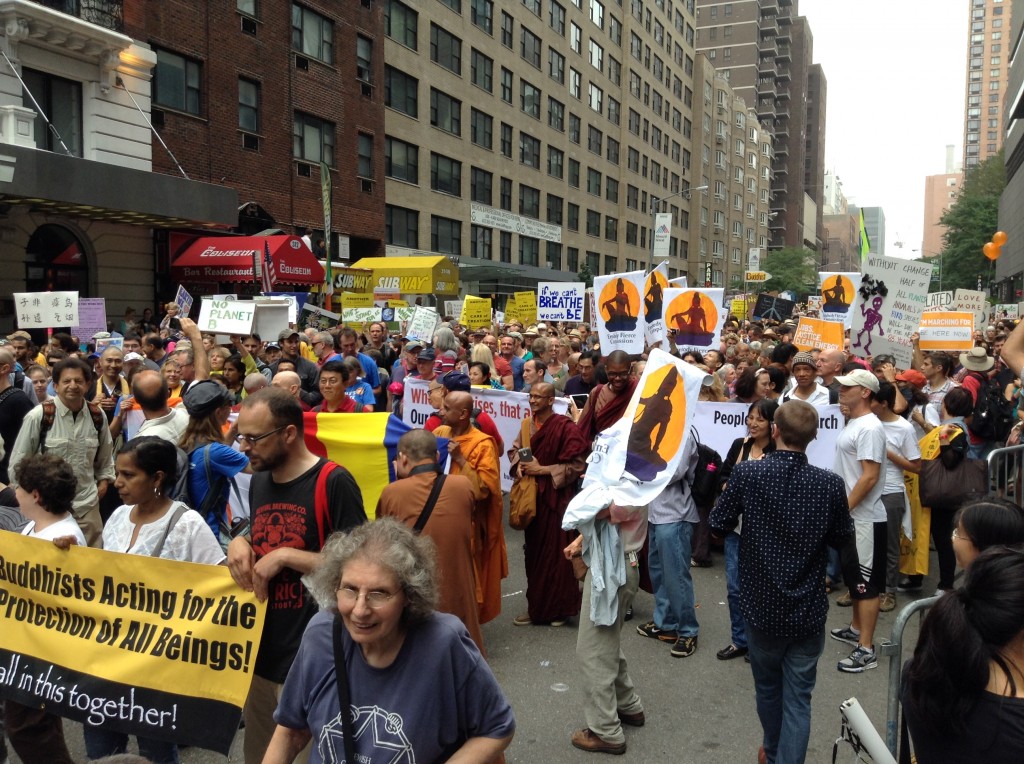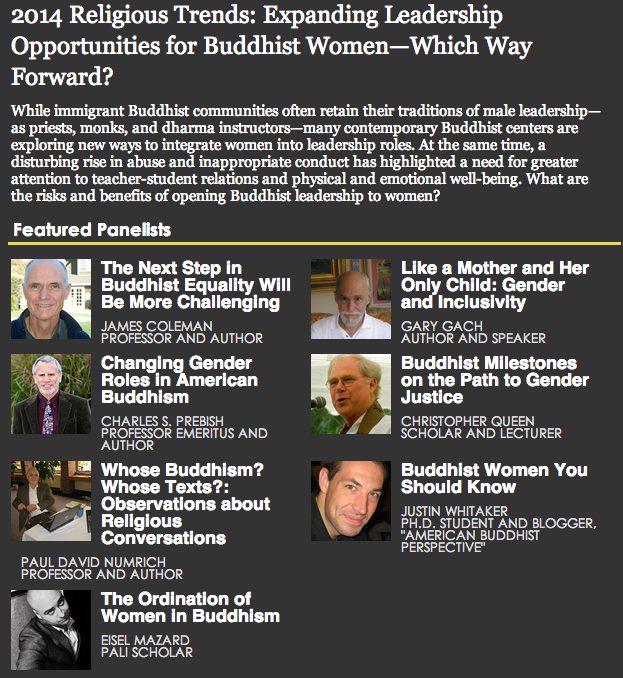
Buddhologist Paul Fuller (who blogs here) has a new piece at the Democratic Voice of Burma that argues for a new term when discussing ethnic conflicts led by Buddhist monastics within countries like Burma, Thailand, and Sri Lanka: “ethnocentric Buddhism.” He advances this term to be used in place of “Buddhist terror” or “Buddhist extremism,” which have been used (most famously in Time Magazine) to describe phenomena such as the Bodu Bala Sena (Buddhist Power Force) in Sri Lanka and Wirathu’s 969 movement in Burma.
Fuller explains:
“Ethnocentric Buddhism” is a term I have begun to use to describe a particular phenomenon in the history of Buddhism, although I suspect it is not a recent one. The term points to the notion that Buddhist identity is intrinsically linked to national identity. It also denotes the idea that other factors will be apparent in creating Buddhist and national identity in different Buddhist cultures. For example, in Thailand there is the idea of “nation, religion and monarch” (chat-sasana-phramahakasat) and in Burma “nation, language and religion” (amyo-barthar-tharthanar). In both of these examples the idea of the Buddhist religion (sasana/tharthanar) is linked to other factors in the formation of national and cultural identity. Further, in both cases the defence of one’s religion is linked to these other themes of national identity — to defend one is to defend the other.
There are a number of possible factors and ideas that could shape the formation of an ethnocentric type of Buddhism in a given country. Not all of these ideas are available in each cultural context. Some are available across Buddhist Asia, some confined to a particular area, or would have been used during different historical periods. There is the idea of the “true dharma” existing in one particular place and of that location preserving this true version of the Buddha’s teachings. For example, in Sri Lanka after the transmission of Buddhism, some aspects of the Pali Canon would be considered to preserve the essential word of the Buddha. Later, national identity could be built around this idea together with other texts being used and composed together with Buddhist symbols, the tooth relic for example, creating the notion of a direct lineage to the Buddha.
You can read the rest here. It’s an interesting and often compelling collection of arguments, and worth a read.
I confess, though, I was left wondering what exactly would be wrong with using terms like “Buddhist terror” or “Buddhist extremism” to describe some of the situations that precipitated Fuller’s article. Let’s use Burma as an example. As I wrote last year:
Today, the United Nations consider the Rohingyas “one of the most persecuted minorities in the world.” [There has been] considerable unrest and devastating violence — dozens dead, whole villages razed, and well over 100,000 displaced — in the Rakhine state as a result of what the Agence France-Presse identified as “the rape and murder of a Rakhine women and the revenge mob killing of 10 Muslims.” By [fall 2012], Human Rights Watch had issued a report noting that “recent events in Arakan State demonstrate… state-sponsored persecution and discrimination [of the Rohingyas],” including murder, rape, and mass arrest. Reuters released a shocking special investigative report not long after which led with what was essentially a confirmation of HRW’s report: “The wave of attacks was organized, central-government military sources told Reuters. They were led by Rakhine nationalists tied to a powerful political party in the state, incited by Buddhist monks, and, some witnesses said, abetted at times by local security forces.”
Is “ethnocentric Buddhism,” then, really helping us understand the full extent of these particular phenomena? Or does it fail in these cases to capture some of the horrible realities here? (At least one blogger from the Rohingya community has responded to Fuller’s piece. I’m not reposting it here since it is more a collection of insults than an actual counter argument, but beneath what the author says are the same questions I have asked here.)
What do you think? Share your thoughts in the comments…











